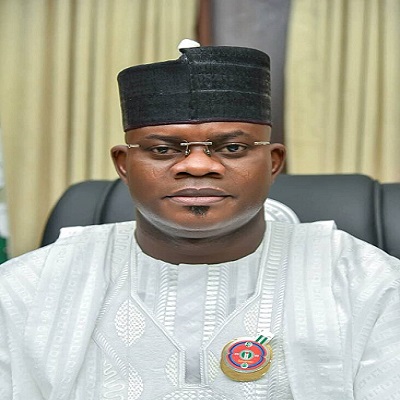Africa
Yahaya Bello’s Bail Application Rejected: A Lesson in Accountability, by Paul Alimu Maunta

The recent rejection of former Kogi State Governor Yahaya Bello’s bail application by the Federal Capital Territory High Court has captured national attention. This decision underscores the critical need for accountability in public service and sends a strong message against corruption.
Yahaya Bello and his co-defendants are accused of misappropriating public funds amounting to billions of naira. These funds were allegedly used to acquire luxurious properties and transfer large sums abroad. Such accusations, if proven, reflect a deep betrayal of public trust. The court’s refusal to grant bail highlights the seriousness of the charges and the judiciary’s resolve to ensure due process is followed.
This case is a reminder of the importance of the rule of law. Regardless of one’s status, everyone must be held accountable for their actions. The rejection of Bello’s bail ensures that he remains in custody, demonstrating that justice applies to all.
The Economic and Financial Crimes Commission (EFCC) has a pivotal role in fighting corruption, and this case is a significant test of its commitment. While Bello’s legal team has argued for his right to bail, citing his respect for the law and presumption of innocence, the court must weigh these claims against the potential risks, including interference with ongoing investigation.
Corruption remains a significant obstacle to Nigeria’s development. When public funds are stolen, critical sectors like education, healthcare, and infrastructure suffer. The allegations against Bello, if proven, represent the kind of systemic corruption that perpetuates poverty and inequality in our nation.
This case should also inspire reforms in governance. Public officials must be more transparent and accountable, and there must be stricter controls on state resources. Additionally, citizens must demand more from their leaders and hold them accountable at all levels of government.
The judiciary’s handling of this case has been commendable so far. By ensuring a fair trial and resisting pressure to grant bail, the court is setting an example for others to follow. However, the process must remain transparent and swift to avoid unnecessary delays that could erode public trust.
It is essential for the media to continue highlighting cases like this. Public awareness and discourse on corruption can drive reforms and increase pressure on leaders to act responsibly. This case serves as a cautionary tale for public servants tempted to misuse their positions.
Ultimately, the fight against corruption is a collective effort. Citizens, government agencies, and the judiciary must work together to create a society where integrity and accountability are valued above personal gain. Let this case be a turning point in our quest for a better Nigeria.
This decision not only holds Yahaya Bello accountable but also reinforces hope in our judicial system. Nigerians deserve leaders who prioritize public welfare over personal wealth. Let this case serve as a deterrent to others and a step towards a more transparent and just society.
Paul Alimu Maunta
Student Department of Mass Communication, Borno State University Maiduguri.

























